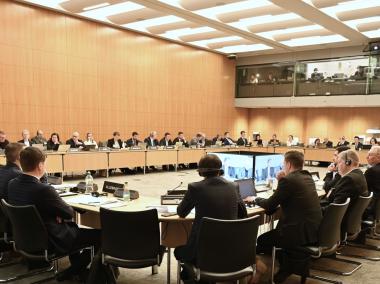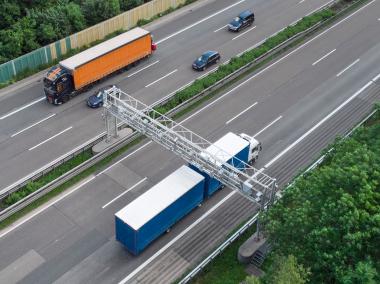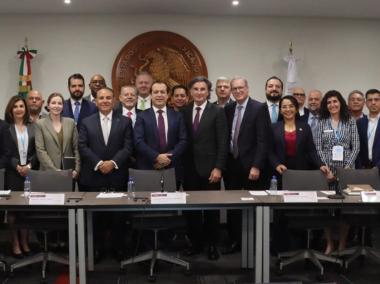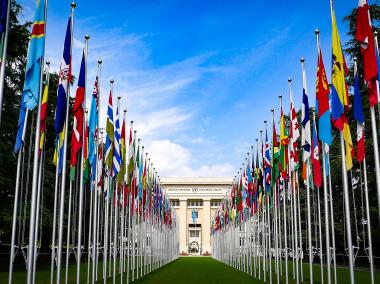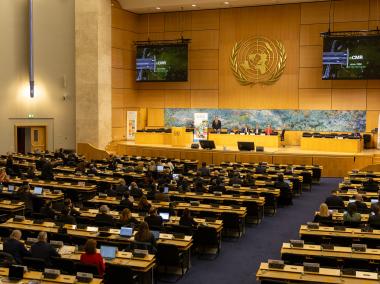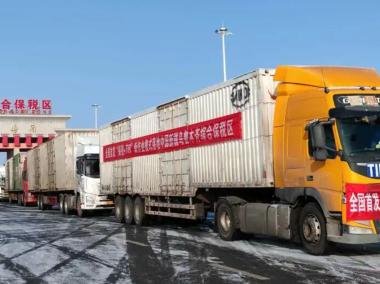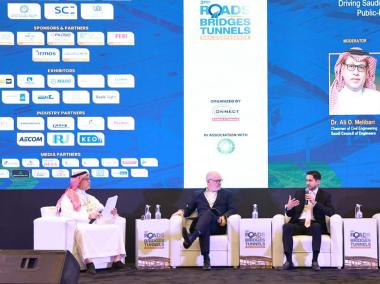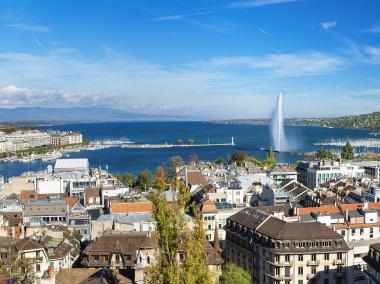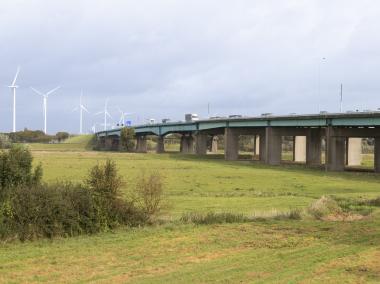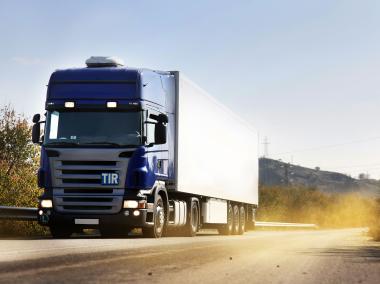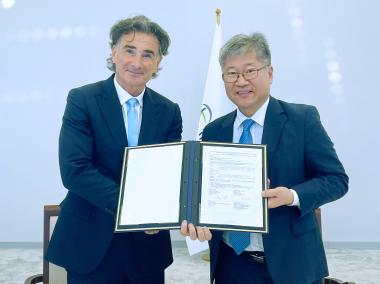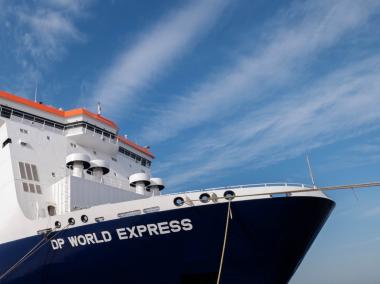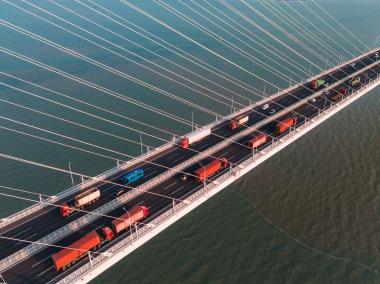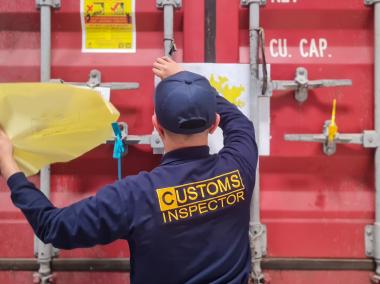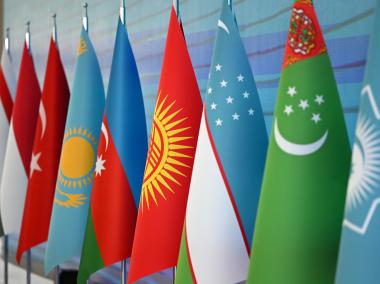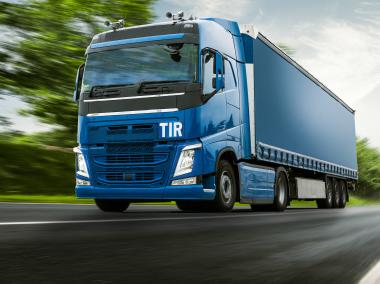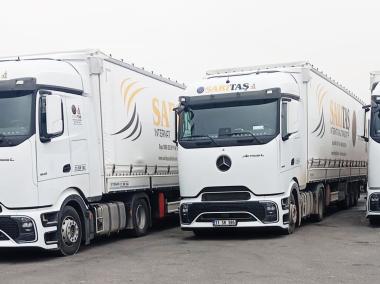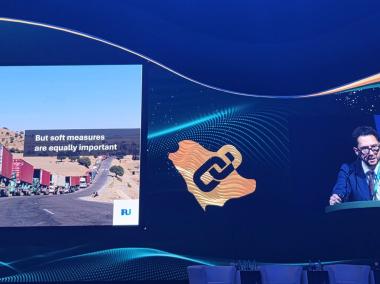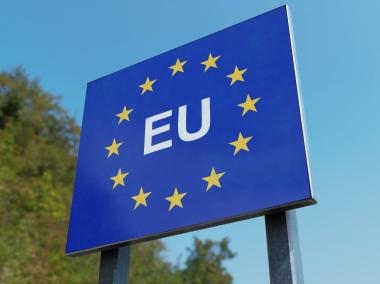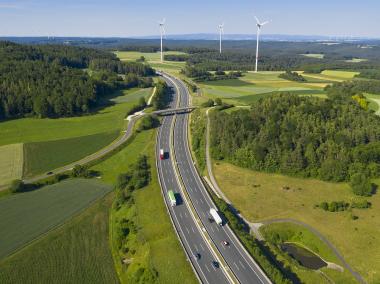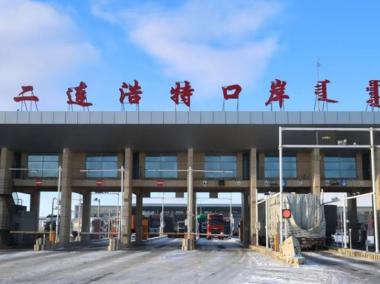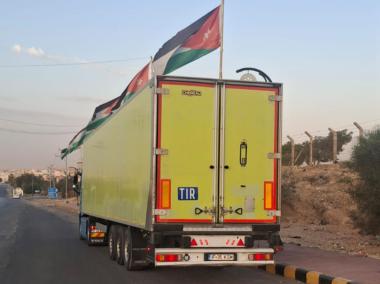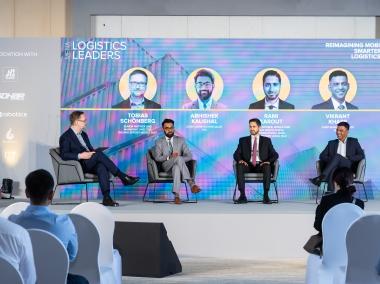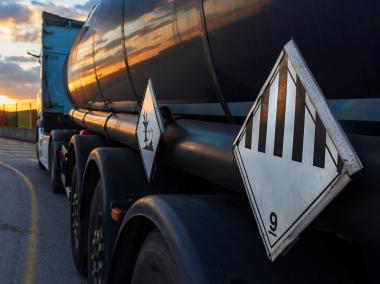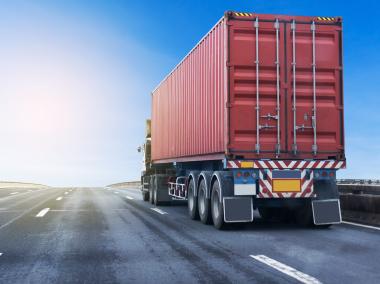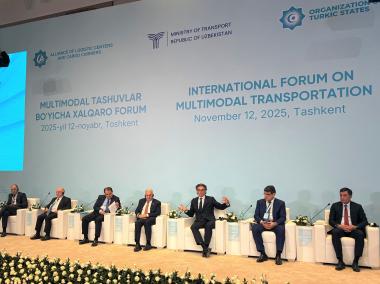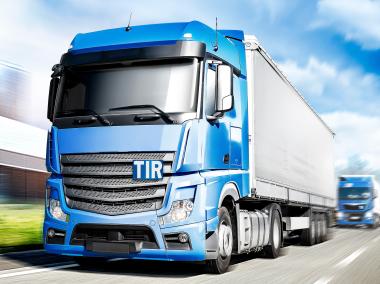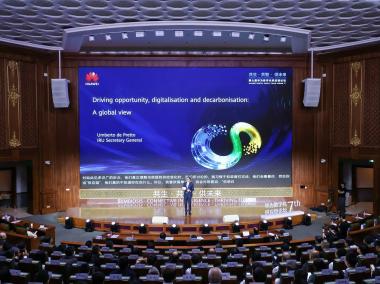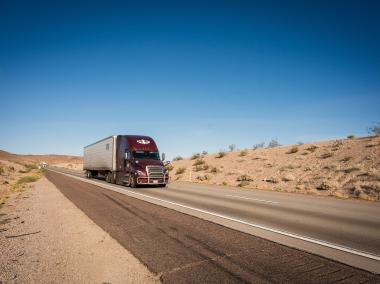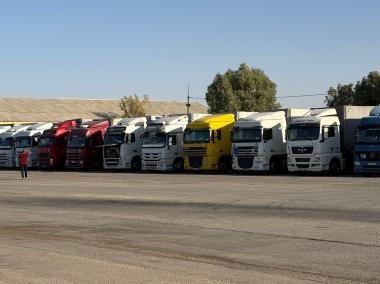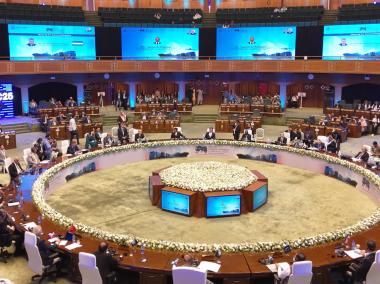
Newsroom
Trade facilitation and transit
Europe | Geneva
Europe’s tolling landscape faces major transformation
Tolls are undergoing a big technological shift – with significant implications for road transport operators. AS 24, a subsidiary of IRU member TotalEnergies, made a strong technological bet four years ago that is now paying off for its customers.
24 Feb 2026 · Prosperity
Mexico | Mexico City
North American trucking chiefs talk as trade agreement revision looms
CEOs and senior figures from North American trucking companies came together in Mexico City to exchange views on cross-border policies at IRU’s annual North American Leadership Dialogue – amid the upcoming revision of the Mexico–United States–Canada trade agreement.
24 Feb 2026 · Prosperity
People's Republic of China | Beijing
Flowers from Yinchuan: TIR in China sparks fresh new road transport options
Transport companies have wasted no time taking advantage of the new types of operations now possible under the global TIR transit system.
17 Feb 2026 · Prosperity
Saudi Arabia | Jeddah
PPPs: the force transforming Saudi Arabia into a global trade hub
Longstanding public-private partnerships (PPPs) like the TIR transit system are accelerating the Kingdom’s evolution into a logistics powerhouse, IRU underscored at the Roads, Bridges & Tunnels KSA Conference.
17 Feb 2026 · Prosperity
EU | Brussels
EU decarbonisation gets €3 billion, but what’s in it for road transport?
The EUR 3 billion ETS2 Frontloading Facility is a welcome development. However, without explicit prioritisation, commercial road transport risks being left without the predictable support it needs to decarbonise.
6 Feb 2026 · Environment
Brazil | Brasilia
Brazil unlocks new trade roads with UN TIR system
The Federative Republic of Brazil has become the 79th contracting party to the United Nations TIR Convention.
4 Feb 2026 · Prosperity
People's Republic of China | Beijing
New secure trade opportunities as China widens TIR operations
The types of operations possible under TIR have been broadened, unleashing new momentum for seamless logistics across Eurasia.
27 Jan 2026 · Prosperity
Global | Geneva
Celebrating the guardians of global trade: International Customs Day 2026
IRU marks International Customs Day 2026, honouring the vital work of customs officers worldwide.
26 Jan 2026 · People, Prosperity
Eurasia | Vienna
Minutes, not maps: making borders work for the Middle Corridor
Freight flows are realigning around new trade routes, but borders remain the weakest link. IRU presented concrete measures to streamline freight flows along the increasingly important Middle Corridor at a major Turkic Week event in Vienna.
14 Jan 2026 · Prosperity
Global | Geneva
Seamless connectivity: Bridging the world with TIR-backed road transport
More than 75 years since TIR – the only global transit system – started reviving and connecting European economies, the system continues to evolve and expand. This year-in-review article looks at five key developments from 2025.
19 Dec 2025 · Prosperity
Syrian Arab Republic | Damascus
TIR operations from Türkiye via Syria resume, restoring key trade route
Movements under TIR from Türkiye to GCC markets through Syria have officially restarted, marking a major milestone for regional trade and international road transport after years of interruption.
17 Dec 2025 · Prosperity
Saudi Arabia | Riyadh
The soft road to the top: How PPPs fuel transport and logistics
Saudi Arabia and other countries are rapidly climbing the logistics ladder. How can they continue moving up? The answer lies in soft public-private partnerships (PPPs), the multiplier of logistics performance, IRU detailed at the Riyadh Supply Chain and Logistics Conference.
16 Dec 2025 · Prosperity
EU | Brussels
ICS2 transition for road transport: IRU supporting industry readiness
The deployment of the European Union’s Import Control System 2 (ICS2) is entering a critical phase for road goods transport. From 1 January 2026, several EU countries will decommission ICS1, meaning Entry Summary Declarations (ENS) for goods entering or transiting through the EU by road must be submitted via ICS2. Further roll‑outs will follow on 1 June 2026. There is no enforcement grace period, so make sure you are ready to avoid delays and penalties.
16 Dec 2025 · Prosperity
EU | Strasbourg
Policymakers and industry gather as EU prepares automotive plan reveal
As the European Commission is expected to present its Automotive Package tomorrow, as announced, IRU and its partner associations, the European Association for Forwarding, Transport, Logistics and Customs Services (CLECAT), and the European Shippers’ Council (ESC), will bring together leading Members of the European Parliament and industry stakeholders in Strasbourg tomorrow to discuss solutions, showcase progress, and ensure that fleet decarbonisation ambitions are grounded in operational real
15 Dec 2025 · Environment
People's Republic of China | Beijing
China opens TIR Green Lanes
New TIR Green Lanes have opened at China’s Erenhot border crossing, significantly accelerating the transport of goods.
15 Dec 2025 · Prosperity
United Arab Emirates | Dubai
Powering the Middle East with smart, safe and efficient logistics
The Middle East is rapidly emerging as one of the world’s most dynamic logistics hubs, led by innovation, investment and smart cross-border solutions. At Logistics Leaders MENA 2025 in Dubai, the public and private sectors came together to map out the next phase of the region’s logistics evolution.
28 Nov 2025 · Prosperity
Türkiye | Istanbul
ECO region push on trade facilitation and digital border solutions
The Economic Cooperation Organization (ECO) region is a leading user of the TIR system, with three of its members – Uzbekistan, Iran and Türkiye – being the top carnet issuers globally. IRU outlined key measures to ministers to further ease trade bottlenecks in the region at a high-level ECO meeting in Istanbul this week.
27 Nov 2025 · Environment, Prosperity
Global | Geneva
New dangerous goods transport rules: what you need to know
What’s new in the 2027 ADR regulation? What are the requirements for using battery-electric vehicles to transport dangerous goods? And how should repacked or undeclared dangerous goods be handled in reverse logistics? Our expert speakers explained all the key points in our recent webinar.
25 Nov 2025 · Prosperity
Africa | Nairobi
Driving road safety in Africa: What can governments do?
Road safety is a huge challenge in Sub-Saharan Africa, for private road users and the commercial road transport sector alike. How can government reforms and actions help? We asked an expert from the region.
19 Nov 2025 · People, Prosperity
Uzbekistan | Tashkent
The Middle Corridor: A world of opportunities
Freight flows along the Middle Corridor are surging. Yet rising challenges could limit growth and development potential. IRU shared solutions at this week’s International Forum on Multimodal Transportation in Tashkent, Uzbekistan.
14 Nov 2025 · Prosperity
Middle East | Damascus
Syria launches first TIR transit movement via Iraq
A new era of seamless trade continues to take shape in the Middle East.
31 Oct 2025 · Prosperity
People's Republic of China | Dongguan
For generations to come: tomorrow’s supply chains
IRU mapped its vision for a world where supply chains are not only efficient and reliable but also sustainable at Huawei’s forum today in Dongguan, China.
31 Oct 2025 · Prosperity
Americas | San Diego
North American trucking leaders weigh cross-border woes in Otay Mesa
The full implementation of initiatives established under the US–Mexico–Canada Agreement (USMCA) took centre stage at the IRU North American Transportation Forum (NATF) roundtable in California.
30 Oct 2025 · Prosperity
Pakistan | Islamabad
Pakistan edges closer to seamless trade
With triple-digit growth in TIR usage over the past year, IRU’s Secretary General has outlined key measures for Pakistan and the region to take transport efficiency and security to a new level at the ministerial conference in Islamabad.
